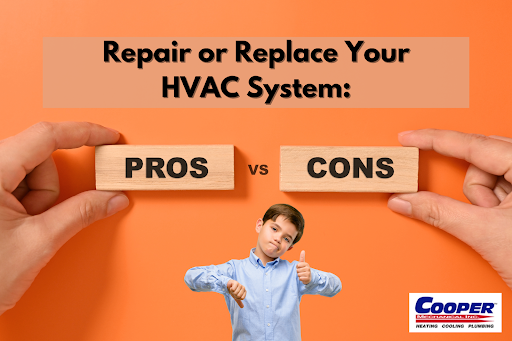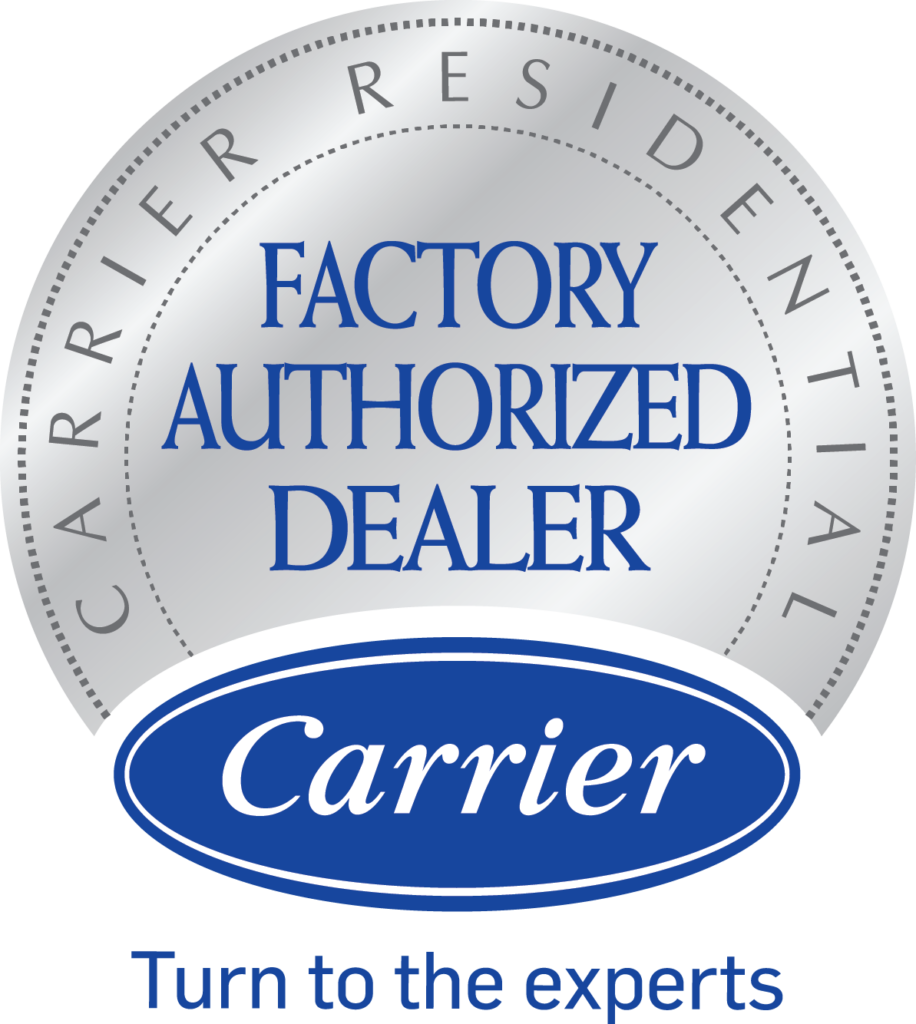As a homeowner, you might be trying to figure out whether to repair or replace your HVAC system. The decision you ultimately make will impact your comfort, energy efficiency, and wallet. At “The Coop,” we’re here to guide you through the pros and cons of each option, helping you make the right decision for your home.
Deciding between repairing or replacing your HVAC system is crucial for maintaining a comfortable, energy-efficient home. With advancements in HVAC technology, the choice can significantly affect your monthly expenses and year-long comfort. Either choice comes with its own set of advantages and disadvantages, impacting not only your immediate comfort but also long-term energy costs and the overall value of the residence
Here, we’ll explore the key factors to consider when making this decision, such as the age of your system, repair costs, energy efficiency, safety risks, and potential impact on home value.
At “The Coop,” we pride ourselves on offering honest, expert advice and top-quality HVAC services. Whether you choose to repair or replace, our goal is to ensure your needs are met to the best of our ability.
Let’s dive into the details and help you make the best choice for you.
The Case for HVAC Repair
Advantages of HVAC Repair
1. Cost-Effective Solution
Repairing your HVAC system often comes at a fraction of the cost of a new heating and/or AC unit. If the estimated repair cost is low and your system is relatively young, opting for a simple repair can save you money in the short term.
2. Quick Fix
A repair can swiftly get your air conditioner or heating system back to working properly, ensuring your home stays comfortable without the possible wait associated with installing a new system.
3. Less Disruptive
Repairing your current heating or AC system is less invasive than a full replacement, allowing you to maintain your daily routine without significant interruptions.
Disadvantages of HVAC Repair
1. Frequent Repairs
Older units or systems that have not had regular maintenance may require frequent repairs, which can add up over time and become less cost-effective.
2. Reduced Efficiency
Even with repairs, older HVAC systems often have lower efficiency compared to newer models. This can lead to higher energy bills and reduced comfort.
3. Limited Life Expectancy
Repairing an older unit might extend its life temporarily, but it won’t match the longevity and reliability of a new system.
The Case for HVAC Replacement
Advantages of HVAC Replacement
1. Improved Energy Efficiency
New HVAC systems are designed to be more energy-efficient, often with high SEER ratings and Energy Star certifications. This can significantly reduce your energy consumption and lower your energy bills.
2. Enhanced Comfort
A new air conditioning unit or heating system can provide more consistent and reliable cool air or heating, improving your overall comfort.
3. Fewer Repairs
Investing in a new unit means fewer breakdowns and repairs, giving you peace of mind and reducing long-term costs associated with frequent repairs of an older system.
4. Better Air Quality
Modern HVAC systems come with advanced filtration and purification technologies, enhancing your indoor air quality and contributing to a healthier living environment.
5. Environmental Benefits
Newer units are more eco-friendly, using refrigerants that are less harmful to the ozone layer and designed to reduce overall energy consumption.
Disadvantages of HVAC Replacement
1. Higher Initial Cost
The upfront cost of a new HVAC system can be a significant investment. However, this can be offset by long-term savings on energy bills and reduced repair costs.
2. Installation Time
Replacing your HVAC system sometimes involves a more extensive process than a repair, potentially disrupting your daily routine for a short period.
3. Depreciation
Like any home appliance, a new HVAC unit begins to depreciate once installed. However, the benefits always outweigh any depreciation.
Making the Decision: Repair or Replace HVAC System?
When deciding whether to repair or replace your HVAC system, consider these important factors:
System’s Age
If your current unit is over 10-15 years old, replacing it might make more financial sense due to the advancements in energy efficiency and the likelihood of increased repair costs.
- Technological Advancements: Modern HVAC systems boast significant technological improvements, leading to higher efficiency, better performance, and new features like smart thermostats.
- Wear and Tear: Older systems tend to have more wear and tear, resulting in decreased efficiency and reliability. Components like compressors and heat exchangers may be nearing the end of their lifespan.
- Obsolete Parts: As systems age, finding replacement parts can become challenging and expensive, making repairs less viable.
Repair Costs
Compare the estimated repair cost with the cost of a new system. If repairs are more than 50% of the cost of a new unit, replacement is often the more sensible choice.
- Cost-Benefit Analysis: Consider both the immediate repair costs and potential future expenses. Frequent repairs can add up quickly, making a new system more cost-effective in the long run.
- Warranty Considerations: New HVAC systems come with warranties that can cover parts and labor for several years, providing peace of mind and financial protection against future breakdowns.
- Energy Savings: Although the upfront cost of a new system is higher, the savings on energy bills can offset this over time, providing better value.
Energy Efficiency
Assess the efficiency of your current system. New HVAC systems can drastically reduce energy costs, making a replacement a smart long-term investment.
- SEER Ratings: Seasonal Energy Efficiency Ratio (SEER) ratings indicate the efficiency of cooling systems. Higher SEER ratings mean better efficiency and lower energy consumption.
- Annual Fuel Utilization Efficiency (AFUE): For heating systems, AFUE measures the efficiency. A higher AFUE rating means more efficient fuel use and lower heating costs.
- Energy Star Certification: Look for Energy Star-rated systems, which meet strict efficiency guidelines set by the EPA, ensuring substantial energy savings and reduced environmental impact.
Safety Risks
Older systems can pose safety risks such as carbon monoxide leaks or fire hazards. A new system ensures compliance with current safety standards.
- Carbon Monoxide Leaks: Older furnaces and heat exchangers can develop cracks, leading to dangerous carbon monoxide leaks. New systems have better safety features to prevent such events from occurring.
- Electrical Hazards: Worn-out wiring and outdated components in older systems can increase the risk of electrical fires. Modern systems are built to higher safety standards, reducing these risks.
- Refrigerant Issues: Older AC units might use R-22 refrigerant, which has been phased out due to environmental concerns. New systems use safer, more eco-friendly refrigerants.
Home Value
A new HVAC system can add value to your home, making it a worthwhile investment if you plan to sell in the future.
- Market Appeal: Homebuyers are attracted to energy-efficient homes with modern HVAC systems, knowing they won’t have to invest in a new system shortly after purchasing.
- Home Inspections: During home inspections, an outdated or malfunctioning HVAC system can be a red flag, potentially lowering your home’s market value or leading to renegotiations.
- Increased Comfort: A new HVAC system enhances overall home comfort, making it more appealing to potential buyers. Improved air quality, consistent temperatures, and reduced noise levels contribute to a better living environment.
Trust The Coop for Your HVAC Needs
At Cooper Mechanical, our team is here to help you make the best choice for your home. Whether you decide to repair or replace your HVAC system, our experienced HVAC technicians will provide top-notch service to keep your home comfortable and energy-efficient. We also offer a range of other services, including heat pumps, plumbing, air filtration and purification, and so much more!
For more information or to schedule a consultation, contact us today. Let The Coop help you enjoy a comfortable, energy-efficient home all year round.






